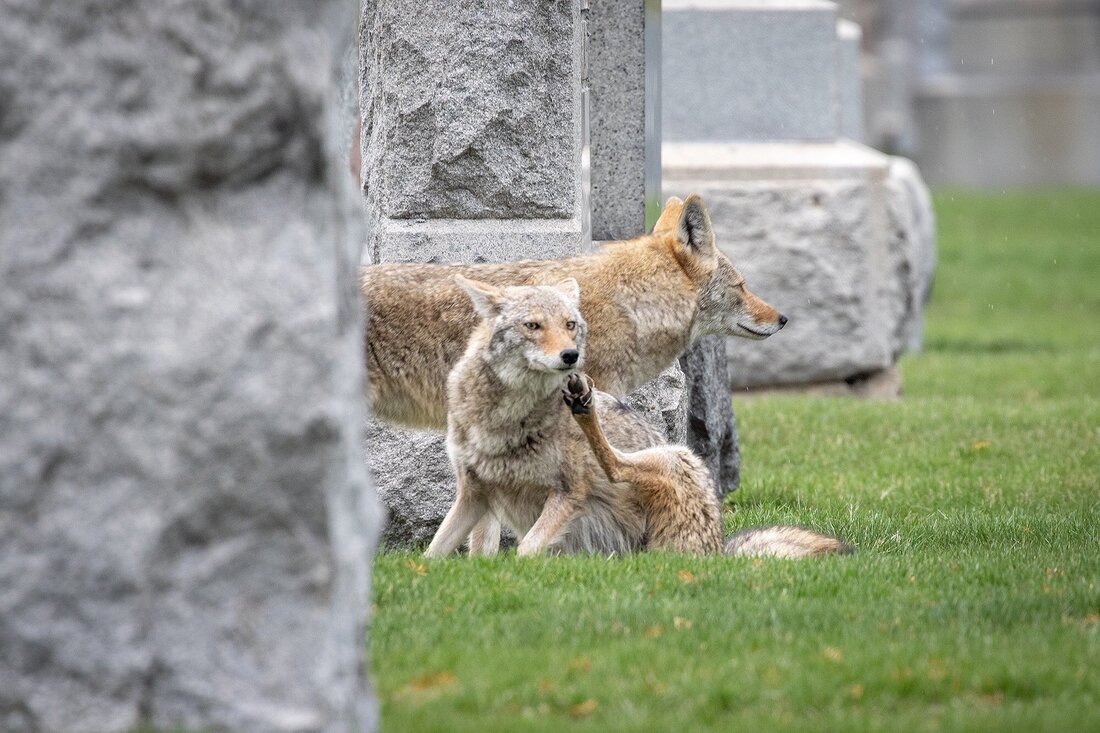|
For one of dissertation chapters, I plan on incorporating environmental justice into my research. This spurred the thoughts on how my field of research could start moving towards a more justice centered field. As I began to think, I realized this was quite a big question and the answers were somewhat clear. However, most of those answers required large, institutional changes. I thought a bit more and finally landed on something that's attainable for everyone. So, I wrote a little piece for the Life in the City: Evolution in an Urbanizing World blog on it.
I've pasted the blog post below (without the images) and have linked the page here if you'd prefer to read it there (with the images). I hope y'all enjoy. Godspeed, C Album recommendation: The Lo-Fis - Steve Lacy ______________________________ Urban ecology has many definitions depending on who you ask. An urban planner or a sociologist may define urban ecology as "the study of the ways that human and ecological systems evolve together in urbanizing regions" (Alberti, 2008) whereas an ecologist may define urban ecology as a field that "integrates both basic (i.e. fundamental) and applied (i.e. problem oriented) natural and social science research to explore and elucidate the multiple dimensions of urban ecosystems" (McDonnel, 2011). Regardless of how we define urban ecology, it is crucial to remember a key component of the system: humans (see Incorporating Human Society Into Urban Ecology). Urban ecology as we know it today is a relatively recent field. However, the field began in the 1920s at the University of Chicago by a group of sociologists. Despite having sociology at the core of the field, crucial components of society, such as the history of a city (including redlining and segregation), have been mostly overlooked until the last decade (see our post on "Systemic Racism Shapes Urban Evolution"). By including these factors, we can truly understand the bigger picture and begin to shed light on the mechanisms that underpin our observations. Recent literature has been pushing us to understand how a city's history impacts eco-evolutionary dynamics. As stated above, this is critical to fully understand the processes influencing the ecology of fauna within a city. Despite this rapidly expanding field that is now emphasizing the social aspect, this work is still predominantly led by white scientists (like much of ecology). The field is now asking questions surrounding systemic racism, redlining, segregation, etc., with few Black ecologists at the forefront. While the contributions of these scientists have pushed this field to new ends, there is much of a responsibility that falls on these scientists with privilege to use this information to enact real change. When developing these projects, the typical pillars of projects are followed: novelty (pushing the field forward), methodology (analysis, measurements), dissemination (publication, conferences). However, within urban ecology, these traditional pillars must include the welfare of the people where the study is conducted. Without this pillar, urban ecology will continue to be flawed and contribute to the lack of equity that exists. Further, this pillar is quintessential because these "hot" questions in our field are more than questions; these are the lives of people that must deal with these adversities every day. At the end of your project, they still have to live in these neighborhoods lacking green space with higher temperatures, higher pollutants; the list goes on. By studying how these disamenities affect historically marginalized groups but not using this information to enact change, it allows these communities to continue to be targeted by a system built against them. We don't expect every professor or researcher to handwrite policies or directly contact policymakers with their results to help communities. That's unrealistic. Instead, for now, we must begin to recognize that this work does not hold much value when it does not go beyond scientific journals and the scientific community. As Schell et al. (2020) stated when discussing how to incorporate environmental justice in urban ecology and the benefits of doing so, "to do so, ecologists, biologists, and environmentalists must reimagine what is considered an ecological or conservation issue.". We must reimagine what we view as traditional ecological issues and look at our societies with an interdisciplinary lens that ties in the sociological foundation urban ecology is built upon. Part of this is viewing accessibility to science and the ability to digest these results as a core issue. In order to center environmental justice in urban ecology, everyone must be able to interpret our results. This means to restore, uplift, and empower the communities that have been disenfranchised (which allow us to ask these layered questions about how wildlife are affected), we must invest in and center science communication and accessibility to science while collaborating with the leaders of these communities. The work we do cannot truly benefit society until those disproportionately affected by the severe variables we study are freed from the pressures that may lower their quality of life. Publishing and communicating in the circle of academics/scientists moves our society forward in ways that do not always enrich the lives of others. In order to correct this, the science must be communicated broadly so that policymakers and communities can understand the consequences of societal decisions on their (and other's) living environment. When communicating our work broadly, we must step outside our grant-writing language and communicate in a more "lay" fashion. If people cannot understand our work (and, let's face it, who uses words like "elucidate" and "ubiquitous" in their everyday vocabulary"), they have nothing to fight for or call their representatives over. We must move away from this essentially closed circle of communication by prioritizing press releases, blog posts, and other non-traditional routes to disseminate results. I encourage all researchers in urban ecology to seek non-traditional routes (blogs, arts, social media, local papers, university press releases, etc.) when publishing their work in journals, so the work reaches outside of the scientific community. I further encourage all urban ecology researchers to share this initiative with colleagues outside of their specialty as science. The ability to fully understand scientific work should not be viewed as a privilege or something only "smart" people engage with. By adequately putting knowledge in the public's hands, we can holistically approach these issues and hopefully produce some meaningful change. Environmental justice is racial justice. Environmental justice is economic justice. Environmental justice is ultimately intertwined with the justice of many causes. A (small) step towards environmental justice is providing folks with the information they need to become educated. I want to emphasize that this is not the sole solution to environmental justice and producing change. There are many steps to get there. But by adding a piece to the puzzle, we can help others see the whole picture, which includes actions like providing an emphatic understanding of the struggles of Black, Latinx, Indigenous, and immigrant communities while centering their voices in urban ecology research and the field of ecology as a whole. Papers Referenced: MCDONNEL, M. The history of urban ecology: an ecologist perspective, in Niemelä, J., Breuste, J.H., Guntenspergen, G., McIntyre, N.E., Elmqvist, T., James, P. Urban ecology: patterns, processes, and applications. Oxford: Oxford University Press. 2011 Schell, C. J., Dyson, K., Fuentez, T. L., Des Roches, S., Woelfle‐Erskine, C. A., Harris, N. C., & Lambert, M. R. (2020). The ecological and evolutionary consequences of systemic racism in urban environments. Science. https://doi.org/10.1126/science.aay4497
0 Comments
I've been slowly reading Malcolm X's autobiography over the past couple of months, and it's pushed me to take a huge step back on how I view life. He was a revolutionary that was demonized by white America (along with other pro-black individuals and organizations) and because of this, I never learned about him in my history courses. It's clear that history erases Indigenous and Black contributions that don't directly benefit the perception of white America. And it's often that those who claim they want to work towards being an ally and liberating Black and Indigenous folks don't always recognize this issue (and issues that stem from this). They'll often jump through hoops to find a plausible excuse as to why this is. Maybe it was "too divisive." Maybe they "went about it the wrong way." (All poor and invalid excuses). Malcolm X refers to these individuals in his book as the "good white people," aka the "liberal" white friends. The ones interested in discussing decolonization, racism, inclusivity, etc., until the finger is pointed back towards them; until it's time to put action behind the words. I've found it frustrating to have discussions with these people because their responses are typically that "race is brought up too much" or "it's too harsh/divisive." It's weird having the mentality of "wanting to learn" but shutting down when it's time to hear that racism is ingrained in every fabric of this country. Before I continue having and contributing to these conversations with friends and strangers, I've decided to focus on learning what it means to find inner liberation, where I can be my true self in a world that looks down on my identity. I'm learning that this liberation is linked to the liberation of Black folks everywhere. And that to liberate Black folks, we must also fight for the liberation of Indigenous folks. After all, these are two groups whose cultures are constantly commodified and matter to people's 23andmes but still aren't important enough to be fought for and protected. I'm continuing to learn that America forces us into centrist ideologies. The idea that we must always meet in the middle, which is ultimately an open space with a trap door leading to a revolving door where no progress is made. I don't like the middle - as I've just illustrated, I think it's an illusion for progress. I don't think there's a middle between wanting to continually create policies for working families to suffer and housing for all. I don't believe that I should compromise on policies and ideas that revolved around protecting those that look like me. This is the colonial mindset - handing out freedom on a leash. I plan to buy several more books (once I finish the large stack of books I swore I would finish last year) on topics surrounding what it means to truly liberate POC from the oppression they suffer in America, specifically Indigenous and Black people, as well as Black liberation on a global scale (surprise, most of it is tied to capitalism and imperialism). I'm excited to keep learning and moving forward. To feel comfortable with who I am and the world I experience while moving towards liberation and joy. Godspeed, C P.S. I think I'll end each blog post with an album I've been loving recently. Album recommendation: The Score (Expanded Edition) - Fugees, Ms. Lauryn Hill, & Wyclef Jean |
AuthorHi, I'm Cesar. An ecologist who actively seeks to view the bulk of his work through a sociological lens. In this space, I'll write about the things I'm learning both inside and outside of science. ArchivesCategories |



